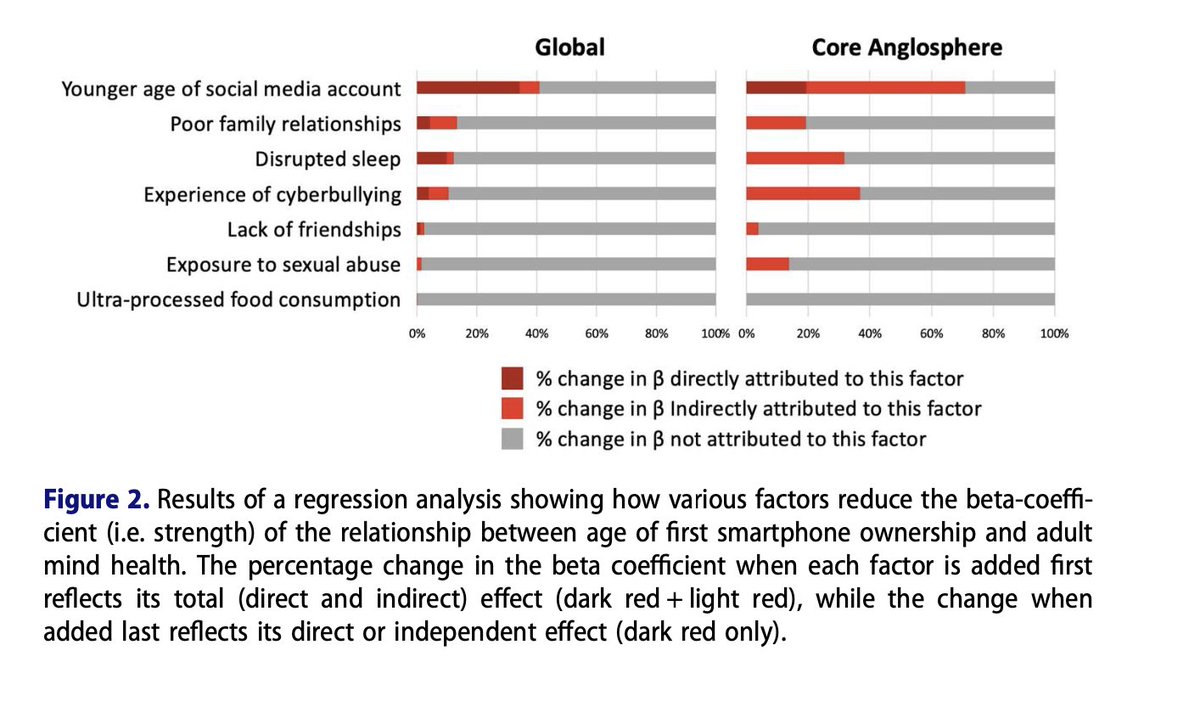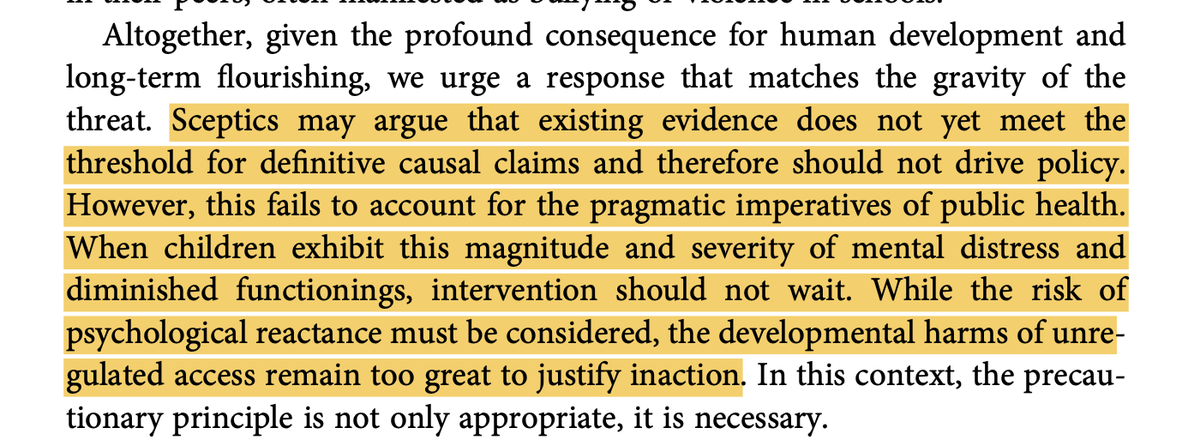What is the effect of giving children smartphones before the age of 13? It's bad. Strongly associated with poorer mental health and wellbeing. BUT the evidence is largely correlational. What does this mean? 🧵⬇️ 

A new global study of over 100,000 young adults found that receiving a smartphone before age 13 is associated with significantly poorer mental health outcomes in early adulthood, particularly increased suicidal thoughts and diminished emotional regulation, with effects primarily mediated through early social media access.
The research demonstrates a clear dose-response relationship: the younger children are when they receive smartphones, the worse their mental health outcomes as young adults. Females who received smartphones at ages 5-6 showing 20 percentage points higher rates of suicidal ideation compared to those who received them at 13.
This broader metric reveals concerning symptoms like detachment from reality and aggression that many measures might miss. The authors suggest this methodological difference may help explain some of the contradictory findings in existing literature, where studies focused solely on depression and anxiety symptoms have produced mixed results.
And these effects are not confined to any one culture or country and are particularly marked among young women, with social media access, cyberbullying, poor sleep and weaker family relationships acting as the main pathways.
An interesting aspect of this study is that it explicitly admits that the current evidence may not yet meet the threshold for definitive causal claims, and that sceptics could use this to argue against policy action.
BUT they argue that the scale and severity of harm shown in the data justify immediate, precautionary public‑health measures rather than waiting for irrefutable proof.
BUT they argue that the scale and severity of harm shown in the data justify immediate, precautionary public‑health measures rather than waiting for irrefutable proof.

This is kind of unusual. They're basically saying: "We know this isn't definitive proof of causation, but the population-level patterns are so alarming and the potential harms so severe that we cannot afford to wait for longitudinal experimental data that might take decades to accumulate."
I'm uncomfortable with the call for radical change based on largely correlational evidence but there is precedence for this: we introduced seat‑belt laws & limits on lead in petrol which were introduced before definitive causal trials but in light of strong, converging evidence.
I think it's important to say here that we're not talking about access to phones here, we're talking about access to social media.
When we talk about the findings in this study, it’s easy for people to hear “phones” and assume the argument is about taking away all digital access or banning technology outright. That is not what the authors are saying, and it’s not a fair characterisation.
What a large body of evidence is really pointing to is early access to AI‑driven, algorithmically‑curated social media environments (the endless scroll of TikTok, Instagram, Snapchat, and similar platforms) rather than the mere physical device.
We’re not really debating whether a child should have a device that allows them to text a parent after school or use a maths app. We’re debating whether they should have an open gateway into algorithm‑driven social media platforms before their sense of self and emotional resilience are fully formed. I think this makes sense.
Social media platforms are not neutral spaces; they are carefully engineered ecosystems designed to capture and hold attention, to amplify emotionally charged content, and to exploit psychological vulnerabilities in order to drive engagement. This is incontestably bad for kids.
The algorithms don’t protect them; they actively push content that provokes stronger reactions, whether that’s anger, shame, or fascination with material far beyond their developmental readiness. For a developing mind, this can mean distorted self‑image, heightened anxiety, disrupted sleep, and in some cases, exposure to dangerous communities.
In other words, the risk is not simply “screen time,” but unfiltered access to an environment designed to shape behaviour and thinking in ways even adults struggle to resist. Allowing this access before a child has built the inner defences of self‑regulation and critical judgement is, as the paper argues, a profound gamble with their mental health and wellbeing.
Read the full study here: tandfonline.com/doi/full/10.10… 🧵
Read the full study here: tandfonline.com/doi/full/10.10… 🧵
• • •
Missing some Tweet in this thread? You can try to
force a refresh













